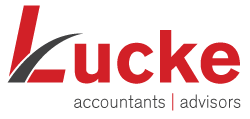As you develop your succession plan, you’ll need to consider how to mitigate the loss of pure know-how that will occur when you step down. One way is to implement a knowledge management strategy. This is a formal process of treating knowledge as a valuable company asset. Knowledge generally can be subdivided into two types: 1) explicit (already documented) or 2) tacit (exists only in your brain). A comprehensive knowledge management effort related to your succession plan will call on you to gather both types in various categories. Contact us for further info.

Author: Jeff Lucke
Jeff Lucke, CPA, is the founder of Lucke & Associates, with an entrepreneurial background. Jeff has had ownership interests in businesses within several industries including automotive, construction, healthcare, telecommunications, and restaurants, as well as being active in real estate. As an owner of a growing CPA firm and other businesses, he has gained unique insights into the challenges and issues that face other growing businesses that most other CPAs do not have. This kind of knowledge ultimately benefits every one of the firm’s clients. He is very involved with clients and becomes deeply involved in their businesses and helping them succeed. Jeff is a graduate of the University of Nebraska and holds a Bachelor of Science in Accounting; his professional affiliations include the AICPA and KSCPA. Jeff currently serves a board member for his community on the Construction Financial Managers Association, the American Diabetes Association, and Big Brothers Big Sisters.






